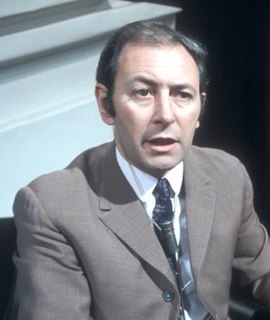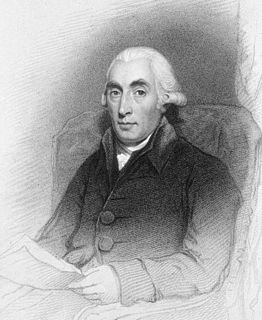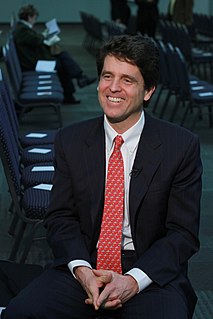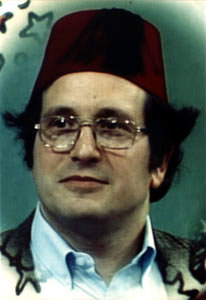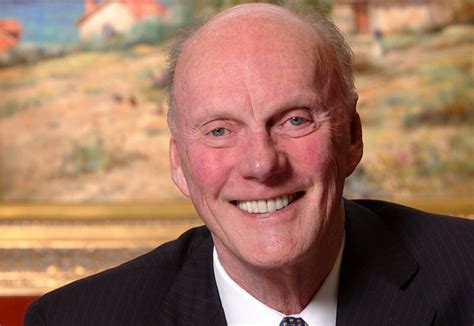A Quote by David Coleman
There is no such thing as doing the nuts and bolts of reading in Kindergarten through 5th grade without coherently developing knowledge in science, and history, and the arts…it is the deep foundation in rich knowledge and vocabulary depth that allows you to access more complex text.
Related Quotes
A man with a scant vocabulary will almost certainly be a weak thinker. The richer and more copious one's vocabulary and the greater one's awareness of fine distinctions and subtle nuances of meaning, the more fertile and precise is likely to be one's thinking. Knowledge of things and knowledge of the words for them grow together. If you do not know the words, you can hardly know the thing.
Until very recently, most knowledge was inaccessible to people who couldn't read text. But this is changing. The computer opens up other channels of gaining knowledge. If someone is blind, we now have very good machines that will read to him. If someone can't recognize letters, he also will have access to knowledge through sound and images.
Please don't make the mistake of thinking that the arts and sciences are at odds with one another. That is a recent, stupid and damaging idea. You don't have to be unscientific to make beautiful art or to write beautiful things... science is not a body of knowledge or a belief system, it is just a term that describes humankind's incremental acquisition of understanding through observation. Science is awesome. The arts and sciences need to work together to improve how knowledge is communicated.
Knowledge signifies things known. Where there are no things known, there is no knowledge. Where there are no things to be known, there can be no knowledge. We have observed that every science, that is, every branch of knowledge, is compounded of certain facts, of which our sensations furnish the evidence. Where no such evidence is supplied, we are without data; we are without first premises; and when, without these, we attempt to build up a science, we do as those who raise edifices without foundations. And what do such builders construct? Castles in the air.
Upon the whole, Chymistry is as yet but an opening science, closely connected with the usefull and ornamental arts, and worthy the attention of the liberal mind. And it must always become more and more so: for though it is only of late, that it has been looked upon in that light, the great progress already made in Chymical knowledge, gives us a pleasant prospect of rich additions to it. The Science is now studied on solid and rational grounds. While our knowledge is imperfect, it is apt to run into error: but Experiment is the thread that will lead us out of the labyrinth.
There is (gentle reader) nothing (the works of God only set apart) which so much beautifies and adorns the soul and mind of man as does knowledge of the good arts and sciences . Many arts there are which beautify the mind of man; but of all none do more garnish and beautify it than those arts which are called mathematical , unto the knowledge of which no man can attain, without perfect knowledge and instruction of the principles, grounds, and Elements of Geometry.
In India there was a sense of time that does not tick with modern clocks, just as there is a knowledge that is not gained through science and empirical experiments. In the modern West knowledge is of objective, finite particulars in historical time. India recognizes that kind of useful information: it calls it "lower knowledge." Higher knowledge (paravidya) proceeds differently, or rather it doesn't proceed at all but enters history full-blown on the morning of a new creation.
To oppose knowledge is ignorant, and he who detests knowledge and science is not a man, but rather an animal without intelligence. For knowledge is light, life, felicity, perfection, beauty and the means of approaching the Threshold of Unity. It is the honor and glory of the world of humanity, and the greatest bounty of God. Knowledge is identical with guidance, and ignorance is real error
Without a complex knowledge of one's place and without the faithfulness to one's place on which such knowledge depends, it is inevitable that the place will be used carelessly, and eventually destroyed. Without such knowledge and faithfulness, moreover, the culture of a country will be superficial and decorative, functional only insofar as it may be a symbol of prestige, the affectation of an elite or "in" group.
In engineering, as in other creative arts, we must learn to do analysis to support our efforts in synthesis. One cannot build a beautiful and functional bridge without a knowledge of steel and dirt, and a considerable mathematical technique for using this knowledge to compute the properties of structures. Similarly, one cannot build a beautiful computer system without a deep understanding of how to "previsualize" the process generated by the code one writes.
